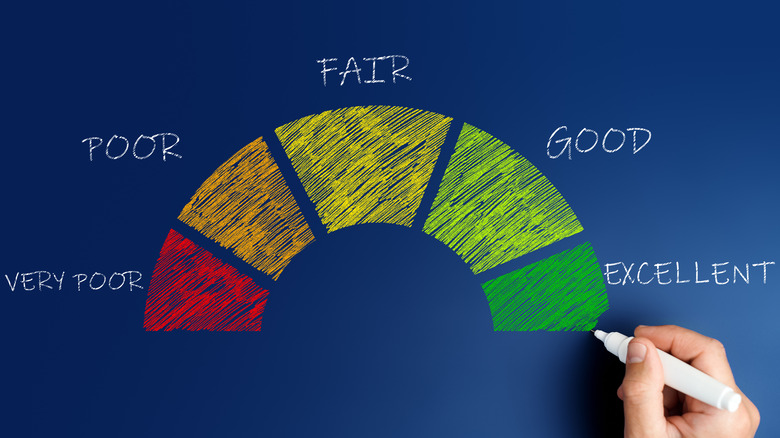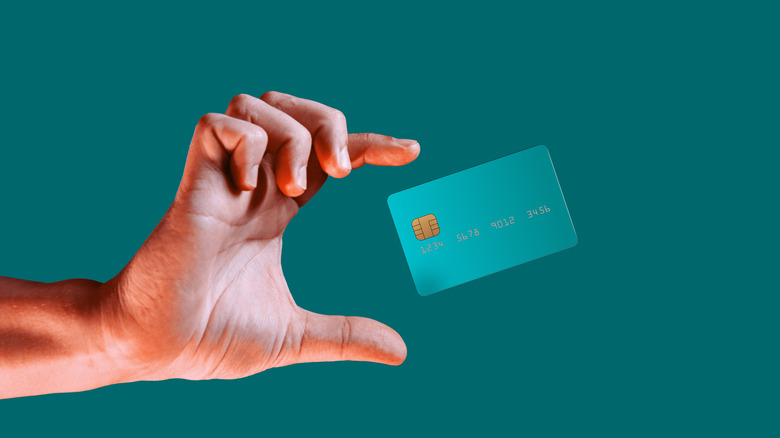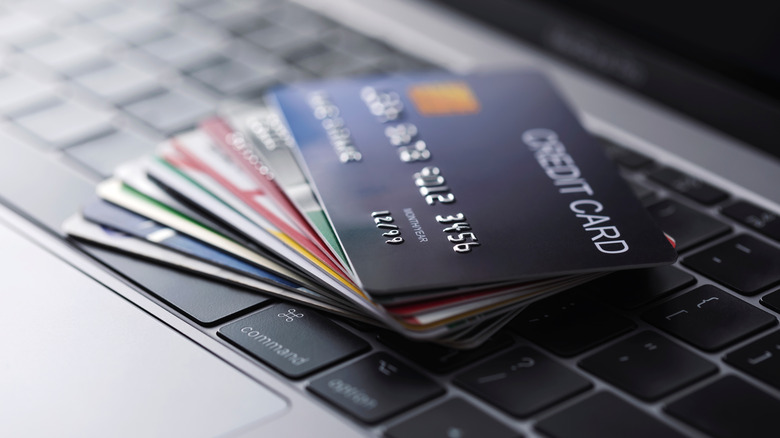15 Best Tips To Build Credit Fast
Building credit is something that every consumer in the United States should take seriously. Your credit score is a direct reflection of your trustworthiness as a borrower. Considering that borrowing is such an important resource in the modern financial marketplace, you simply can't afford to ignore your credit score.
When making large purchases like a new home or car, your credit score will play an instrumental role in gaining access to financing products that make the purchase affordable. As a result of this complex finance system, the first thing anyone who wants to get serious about their credit history needs to do is understand how financing a purchase really works. The most important facet to keep in mind is that a higher credit score will result in lower interest rates and better repayment terms overall.
What this translates into is a cheaper cost to borrow money for major purchases. A loan or line of credit really revolves around the acquisition of money to use in everyday spending or on a large, one-time expenditure. When you purchase a new home, for instance, you need to save up money for the down payment but the mortgage loan that you take out from a bank is essentially the purchase of financial mobility that you'll repay every month for the following 15, 20, or 30 years. The interest that you pay on top of the principal borrowed is the price of that asset.
Learn how credit scoring works
What you're really doing by spending money on a credit card or taking a loan is borrowing money from your future self and paying a service fee to the issuer for the convenience. The more you use credit accounts the more nuanced your credit score will become. This is because lenders continue to report to credit bureaus about your general borrowing and repayment activities, and all of this data feeds into an algorithm that reflects your capacity as a borrower in the form of a credit score. Today, the average credit card user in the United States owes roughly $6,000 and maintains an average of four credit card accounts. All of these data points are used to make sense of your reliability as a borrower and repayer of financial capital.
The most important factors when it comes to determining your credit score are revolving balance and total credit utilization. These two statistics go hand in hand, reflecting two distinct aspects of your borrowing history. The total amount owed, or your revolving balance is exactly what it sounds like. This is a running tally of how much money you owe lenders at any one time. Your utilization is represented as a percentage and is a ratio of how much you owe measured against the total available credit that lenders have entrusted you with. One thing that all borrowers should strive for is a utilization figure of less than 30%.
Sign up for credit monitoring services
Credit monitoring services are an essential asset for anyone looking to improve their credit score. Credit monitoring is often available directly through your bank or from one of your credit card issuers, but it can also be found through a third party. Credit monitoring allows you to be somewhat more hands-off with your monitoring processes. Whenever a new inquiry is made in your name and Social Security Number, the credit monitoring service that you have chosen will notify you. These services work the same way that sign-in notifications provide you with information about new logins from unrecognized devices.
However, credit monitoring services are far more consequential when it comes to protecting your information and identity. With a rapid notification process in place, you can be sure that any new inquiries made fraudulently with your data can be dealt with swiftly in order to protect you from malicious financial harm. A credit monitoring service is incredibly easy to sign up for, and it can save you a lot of heartache and hassle.
All it takes is one successful attempt to use your information fraudulently for your credit score to be severely impacted. Unauthorized activity can come in many forms, from the use of a stolen physical credit card to sign-up attempts with your Social Security Number and other information to access new lines of credit for all sorts of purchases that can really weigh you down.
Request credit reports from credit bureaus to monitor your credit health
In addition to routine credit monitoring services, another important feature of good credit management is the use of credit report requests. There are three major credit bureaus in the United States: Equifax, Experian, and TransUnion. Each of these credit bureaus will provide you with a free credit report every year, according to the U.S. Consumer Finance Protection Bureau. You'll need to provide some pertinent details to verify your identity and create an account with each credit bureau, but requesting one copy each year from all three can be spread out to allow for a new report to be generated every four months.
Requesting your credit report provides unfettered access to the details used in determining your eligibility as a borrower for all types of different financial products. Using credit monitoring services will give you alerts about when new data is created surrounding your Social Security Number and name, but you need to take this effort to protect yourself at a higher level. By requesting credit reports you can find and address incorrect data, potentially negative reporting, and more, immediately correcting inaccuracies that can negatively impact your score. Taking it upon yourself to manage and protect your credit report and personal financial history is a key step in identifying ways to boost your credit score and ensuring that potentially negative information is culled from the report whenever possible.
Immediately dispute any errors in your credit report
One important feature that credit report requests can bring to bear is the ability to find and dispute errors in your credit report. If a fraudulent account has been opened in your name, it will appear on the credit report and you can easily identify it because you'll know that it wasn't you who opened the account. Alternatively, sometimes lenders and credit bureaus make mistakes and report details that are incorrect or should correspond to another person's credit report. Requesting routine credit reports from each of the bureaus gives you direct knowledge of any potential errors or fraudulent entries that appear on your report and allows you to take action to resolve them.
While it's obviously detrimental to have a fraudulent account listed on your credit history, the real pain comes from inactivity on the balance. If a person illegally gains access to your information and opens an account with a furniture store, or an electronics retailer and successfully buys thousands of dollars worth of goods under your name, they are not going to return to the outlet and pay their bill. This means that you'll end up with a delinquent account that is reported to credit bureaus, providing immense negative weight on your ongoing ability to borrow through new lines of credit or personal loans. Dealing with fraudulent accounts and errors on your credit report can immediately skyrocket your credit score by removing potentially large issues.
Pay your bills on time
One of the most important things you can do to maintain a healthy credit score and increase it over the long term is to pay your bills on time, every time. Ensuring that you meet at least the minimum payment required for each of your bills every month will keep your credit score moving in a positive direction.
Even if you aren't able to make excessive payments to eat away at the principal, paying on time shows lenders that you are serious about your responsibility as a borrower. Paying your bills on time represents a moderate chunk of the math involved in calculating your credit score. This feature is one that will continue to gradually improve your score if you maintain good standing on each of your accounts, but, if you miss payments or make routine late payments, this aspect of your credit history can severely — and negatively — impact your score. By missing payments, you signal to lenders that you do not take great care of your debts and are far more likely to default or miss payments on future lending opportunities.
Therefore, even if you are unable to engage in aggressive repayment strategies or other options designed to boost your credit score, making payments on time and keeping your accounts in good standing will pay off dramatically.
Don't miss payments
It goes without saying that missing payments is a decidedly negative habit. Making a late payment won't always result in any report being made to credit bureaus. If you're late by a day or two, you may be assessed a late fee but your lender often will still report the payment as on time when feeding back to credit bureaus. Generally speaking, lenders report on your activities as a borrower two weeks to a month after you've taken a new action in relation to the account. This means that by the time your lender gets around to reporting balance information and payments to the credit bureaus, it's easier to simply report the payment rather than detailing issues. This isn't always the case, but a single late payment may not result in substantial (or even any) damage to your credit report.
A missed payment, however, is a detrimental decision when it comes to managing your credit history and continually improving your credit score. Missing a payment is always a big deal. Missing a payment sends an even greater negative signal to lenders that you cannot manage your debts or do not care to. However, if you are experiencing serious financial hardship in the short term, it's always a good idea to contact your lender before missing a payment. It's not in a lender's best interest to harm their borrowers and so lenders will often work to provide those experiencing legitimate financial trouble with alternative solutions.
Pay bills with a strategy for minimizing reported balances
It's important to pay your bills on time, obviously. But one strategy that many borrowers have employed to great success is the use of multiple payment dates rather than a single due date. Paying your lender multiple times during the month rather than just on one occasion can generate ongoing positive pressure on your credit score that really starts to add up.
Experian reports that the excess volume of payments made won't impact your score on its own, but the positive consequences that occur as a result of these additional payments will often produce the desired result with rapid effect. For one thing, making multiple payments typically leads to overpayment in relation to your minimum required contribution. This will always result in faster credit score growth because you will effectively be reducing the principal owed and the utilization rate at a faster pace than a borrower who only pays the minimum payment each month. Similarly, even if you're only paying the minimum payment this strategy can be beneficial.
Your ongoing interest additions are calculated on a daily balance equation. So, if you owe $500 on the last day of the month and you pay this balance in two $250 installments at the beginning and end of the month, you'll end up being charged less in interest. Consequentially your reported balance will be lower when relayed to the credit bureaus.
Manage accounts that may be in collections as soon as possible
Managing your credit history and improving your score isn't just about tackling credit card bills. It's also essential to deal with other types of credit accounts, and perhaps the most consequential of all your accounts are those that have been sent to collections. If you fail to pay a bill over a long period of time, that account may be sent to a collections agency in an attempt to recover. This can happen with medical bills, personal loans, utility bills, and other fines and charges.
Collections agencies that buy debt do so for pennies on the dollar, meaning they make a huge profit if they're able to collect a debt in full. There are certain rules that govern the behavior of debt collectors, and generally speaking, they can't harass or intimidate you. But this doesn't mean a debt collector won't try to scare you into paying in full and prioritizing this bill over other financial obligations.
Negotiate reporting language on any account in collections
In addition to managing debt that's been sent to collections, you should always remember that paying the debt off isn't the only step in this process. Equifax reports that creditors can have a debt removed from their credit report. But, if you simply pay the debt without any negotiation, a creditor may not do this automatically. This means that a black mark will be left on your credit report for months or years, even after you've paid off the money owed in full.
If a debt has been sold to a collections agency you may be able to negotiate both the language surrounding its reporting and the actual amount that you pay. While it's never a good thing for a borrower to see a bill go to collections, this does give you the opportunity to renegotiate much of the terms associated with the money owed, so there is a definite upside here. Similarly, the speed with which a debt in this category can be eliminated is blistering.
Seeking financial advice from a nonprofit consumer protection agency is always a good idea in these circumstances. These types of professionals can help you understand your rights as a consumer and give you the facts required to negotiate repayment and favorable reporting terms on this debt.
Ask to be added as an authorized user on a trusted friend or family member's account
Another great option for building credit with ease requires you to ask for help from loved ones or friends that you trust. A parent, aunt, or perhaps even a friend can add you as an authorized user on their account, theoretically giving you access to their lines of credit. Someone you know who carefully manages their own credit score can be a great asset when trying to boost yours, according to Forbes Advisor.
A parent or grandparent with little to no debt and significant borrowing potential, for example, can add you as an authorized user on one of their credit accounts and then simply continue doing exactly what they do on a routine basis. In theory, as an authorized user you have access to these funds but an authorized user doesn't need to physically have access to a card or maintain any actual ability to spend money from one or more of a primary user's accounts. Simply being added to a person in good financial standing's account will buoy your credit score with virtually no effort whatsoever.
Of course, being added to someone else's account requires a candid and serious discussion about your finances and needs, and this may be a hard conversation to have with a loved one. But for those who are serious about improving their credit rating, this strategy can be immensely beneficial in just a short space of time.
Ensure that your rent and utility bills are reported to credit bureaus
Those who maintain good standing with their landlords and on their routine bills have the ability to leverage these on-time payments to their advantage. In the same way that paying your credit card bills, mortgage payments, and other obligations on time will improve your credit score over the long run, these bills can also be factored into your credit reporting, but only if you follow up on them.
Services like Experian Boost will take your ongoing utility bills and rent payments into consideration as a component in evaluating your credit score. This can be a great asset for those who consistently pay their monthly bills on time and without issue. In the same way that making payments on time in other areas is beneficial to your credit reporting, these substantial financial obligations can be used for excellent leverage when seeking to quickly boost your credit score. In the lead-up to purchasing a new home, for instance, using a service like Experian Boost can be enormously beneficial because the enormous influence that years of on-time rent and utility payments can have on your credit history can push you over the edge of a new credit score category with little to no effort on your part (simply the act of reporting these additional histories of payment).
Add a different kind of credit account to your credit history
One thing that many people don't realize is that a variety of different credit types can positively impact your credit score. A borrower with a number of credit cards and no other borrowing history might want to consider taking out a personal loan simply for its ability to add a new type of credit to your mix of borrowed funds. Similarly, a debt consolidation loan can be beneficial for someone with a number of different credit card bills each month. Furthermore, a variety of resulting due dates using a personal loan to bring all these debts together into one easy-to-manage payment can potentially bring the interest rate you pay on these debts down, reduce the number of unique payments you have to keep track of, and add a new type of borrowing into your credit mix.
Making use of a variety of different types of credit is an essential component of good credit management. This shows that you can handle a number of different financial responsibilities, and it also suggests a level of sophisticated fiscal knowledge that can only be gained through experience. Managing different kinds of debts is highly beneficial and will serve you admirably.
Ask for a credit limit increase
Increasing the limit on one or more of your credit cards is a great way to improve your credit score with nearly immediate effect. You can typically ask for a credit limit increase every six months, and an update to this figure expands your maximum borrowing power significantly. A credit limit increase can be a dangerous thing for some. This is because with increased available credit comes the potential to increase your spending and reliance on this borrowed capital for routine or even additional large purchases. But a smart credit manager will look to increase their credit limit and then not take advantage of the added spending power that comes along with it.
By increasing your credit limit you effectively improve the credit utilization balance of your existing debts. If you owe $1,000 and have a credit limit of $2,000, for instance, your utilization is 50%. But if that limit is increased to $3,000, without doing anything to pay down this debt your utilization has suddenly dropped to 33%. Increasing the available capital that you can borrow is an essential strategy for quickly boosting your credit score in this way, but the total available capital (in dollars) is also a useful statistic in the same way that your total amount owed can sway your credit score one way or another. The more money you have available, the more trustworthy new lenders will likely see you as.
Keep your oldest lines of credit active
Another crucial approach to consistently improving your credit score is the maintenance of your oldest lines of credit. Your first credit card may have been a secured card that required a deposit of funds in advance. This card (or any other credit card you may have taken out early on in your credit journey) likely doesn't provide much in the way of perks in comparison to your newer accounts. This incentivizes you to spend only on accounts that provide cash back or travel reward points and it may even lead you to consider closing an old account because you no longer use it.
But, CNBC notes that one key element in your credit report is the age of your borrowing history. Closing your oldest account effectively shortens your credit history. This means that you should always keep your oldest account open in order to continue showing a long trail of fiscal responsibility and appropriate credit management. You may need to spend some money on this account every once in a while to maintain its active status, but losing out on the points you might otherwise earn is a small price to pay for the enormous credit reporting benefit at this old account provides.
Keep active balances low and limit future spending
Lastly, as you continue to progress through your credit journey, you may be tempted to increase spending with your credit accounts once you've started to make substantial progress in improving your credit score and paying down debts. This, however, is a mistake. Credit management, is a long-term process and an ongoing effort that you cannot ignore for periods of time when your score is on the rise. As your score starts to crack through good and even excellent credit ratings, you may be tempted to let your efforts slide a bit. Maintaining low balances and remaining fiscally responsible with any new spending that you consider both on credit cards and in cash is an essential part of maintaining consistently improving credit scores and borrowing opportunities.
If you do find yourself needing to spend money that you can't immediately pay back on a credit card, it's a good idea to consider new card offers that provide an introductory 0% interest rate. Swapping out an older card (but not your oldest account) for a new one that provides this type of benefit can help you ward off the heavy toll of a credit card's interest rate while you regain your financial footing and get back ahead of the curve.















